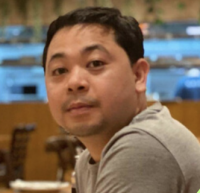Dr. David Turner, Stroke and Geriatric Consultant at UCLH talks to us about the importance of donations
Dr. David Turner, Stroke and Geriatric Consultant at UCLH talks to us about the importance of donations
Following the incredibly generous support of The Woosnam Foundation and The Lord Leonard and Lady Estelle Wolfson Foundation, we caught up with Dr. David Turner, Stroke and Geriatric Consultant at UCLH, to learn a little about his job and to hear what a difference a regular donation can make to the Stroke Unit.
Q: Please can you tell us about your main responsibilities as Stroke and Geriatric Consultant within the Stroke Unit at UCLH?
A: I work on the Hyper Acute Stroke Unit rota. This means that I am the stroke consultant on call 24 hours a day. I see the patients at the front door during the day and give advice over the phone at night. We have an on call rota of 13 consultants and we each work 28 days a year which are alternated between us. It is very rewarding but also very intense. I love it – but by Friday evening you are ready to hand over! I also manage junior doctor staffing and the rota. This involves a lot of meetings and administration – but it is vital as the junior doctors manage stroke patients 24 hours a day. If we can recruit and train the best doctors then the quality of care improves.
Q: Mr Michael Feldman has been supporting the stroke unit since 2019, what difference has his support made?
A: Michael and I agreed at the beginning that for any organisation your most important asset is your people. So with the funding that we have received from Michael through The Woosnam Foundation, we have been able to invest in our people. Crucially this funding is also under our direct control, so we do not have to apply through multiple committees. We can be nimble. One example of this is that during the pandemic the places on courses for “Advanced Life Support” were in very short supply. So we organised and paid for our own course. This meant that staff were all trained and up to date with emergency procedures and care. As a result of this, they felt more confident in their jobs. It helps with morale and staff retention. Working in emergency front line care is really, really hard – the fund allows us to show that we care about staff, and when we invest in them, they feel valued. Our staff then pass on the benefits of their training to their patients and are able to provide better care.
Q: In light of the recent brilliant news that The Woosnam Foundation and The Lord Leonard and Lady Estelle Wolfson Foundation have chosen to support the Stroke Unit at UCLH for three years with a joint annual donation of £100,000, what difference does this make to the planning that the Unit is able to put in place, and what difference do you think donations in general make to the work that the NHS is able to do in terms of patient care and support?
A: It is a fantastic opportunity for us – we can now say to any stroke healthcare worker, “if you want to improve, do a course, go to a conference, learn a new skill – then we can support you.” With this level of funding the default answer is “yes.” This motivates people to apply as it removes a key barrier, and this focus on improvement and learning then permeates the whole team. An example of this is that one of our health care assistants from the Philippines, Ervin Cahoy Bersabe, has accessed the fund to pay for exams, which now means he can work as a qualified nurse. Once you create this kind of culture all the staff start improving the care and systems independently. They are proud to work for the stroke team and to provide the care they do. The patients and their families then notice this culture – care is kinder, quicker, better.
We are grateful to Dr. Turner for taking the time to talk to us and for sharing such interesting insights into the huge benefit that additional funding can make to a department.
CASE STUDY
‘I'm Ervin, one of the Staff Nurses working with the Stroke Services here in UCLH. I was a registered nurse back in the Philippines and I decided to move here in the UK for better opportunities. I started off as a healthcare assistant, then went on to work as a TIA Practitioner.

My dreams of becoming a UK registered nurse never stopped. With the help of The Michael Feldman Bursary Fund, I was able to focus on studying and not have to worry about the numerous expenses such as CBT, OET and OSCE. The Trust and my stroke team pushed me to pursue my dream and further my career to become a registered nurse. I would like to thank my team, Mr Michael Feldman and Dr. David Turner for helping me reach my goal. Now, I am officially a registered nurse of the stroke team, a multitude of opportunities await me and I will be forever grateful to everyone that supported me. Again, thank you for creating a way to help so many people’ ~ Ervin Cahoy Bersabe
